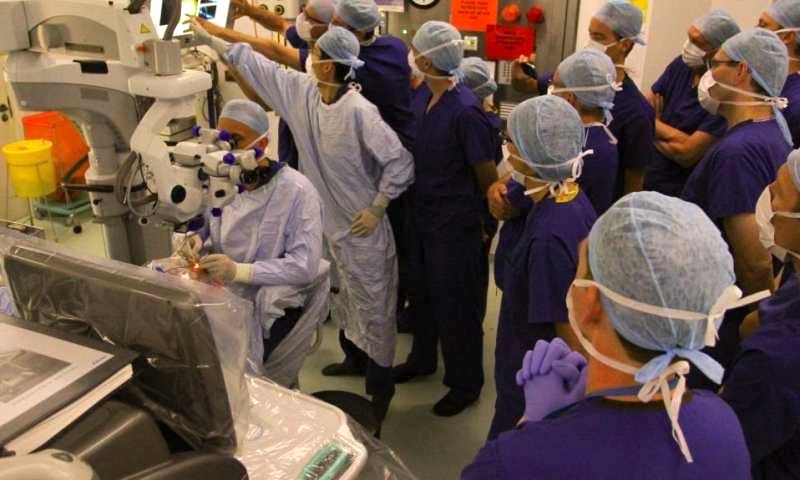An exciting new gene therapy trial has restored full or partial vision to blind patients who were robbed of their sight because of a genetic condition.
The study, which was launched at the University of Oxford back in 2011, recruited 14 patients to receive an eye injection of the virus containing the missing gene that caused the blindness.
By the end of the study, there was a significant gain in vision across the group of patients as a whole.
Furthermore, of the 12 patients who received the treatment without any complications, 100% either gained or maintained vision in their treated eyes, which was sustained for up to 5 years at the last follow-up. During this time, only 25% of the untreated eyes – which acted as a control group – maintained vision.
RELATED: After Century of Removing Appendixes, Docs Find Antibiotics Can Be Enough Two-Thirds of the Time
This was the world’s first gene therapy trial for treating the genetic condition, and the treatment was generally well-tolerated with no significant safety concerns.
“The early results of vision improvement … have been sustained for as long as we have been following up [with] these patients – and in several, the gene therapy injection was over 5 years ago,” said Professor Robert MacLaren, the ophthalmologist who led the trial.
“The trial has made a big difference to their lives,” he added.
The patients all suffered from a condition called choroideremia, also known as ‘retinitis pigmentosa’. The disease has reportedly become the most common cause of untreatable blindness in young people.
WATCH: Boy Thought to Be Nonverbal Can Speak After Dentist Discovers He is Simply ‘Tongue-Tied’
Last month, the European Medicines Agency formally approved its first gene therapy treatment for a different eye disease. Experts predict that other currently incurable diseases are likely to follow and will have approved gene therapy treatments in future years.
The success of the Oxford study has since led to a much larger international gene therapy trial involving over 100 patients across nine countries in the EU and in North America. If successful, the follow-on trial could result in the gene therapy treatment being formally approved by the relevant regulatory bodies worldwide.
The results of the trial were published in Nature Medicine earlier this week.
Cure Your Friends Of Negativity By Sharing The Good News To Social Media – Photo by Professor Robert MacLaren




















